Regular readers of our Star Trek reviews will know that we try to strike a fair balance between praise and criticism — highlighting the things we love, while still making sure to call out questionable writing and production choices — and for the most part, your comments tell us that we’ve done a good job at that over the years.
Keep that in mind as we report that Star Trek: Section 31 is the Kurtzman-era’s most spectacular miss. It’s a movie with almost nothing to say, one that lacks joy, and — most egregiously — it doesn’t care at any point that it’s a movie connected to the Star Trek franchise’s rich history. On nearly every level, Section 31 is a failure.
Friday’s full-spoiler review is going to tell you more about why Section 31 is a bad movie overall — there is a long list of story points that Paramount+ has embargoed from pre-release reviews — so for today’s initial reflections, I want to focus specifically on why I think it’s a poor representation of a Star Trek movie, and a catastrophic misinterpretation of the otherwise noble goal to reinvent the franchise for the 21st century.
Love it or hate it, but Alex Kurtzman’s command of the Star Trek franchise has been an era of experimentation. While he has never fully articulated this point out loud, one can read between the lines and Kurtzman’s diagnosis of the Star Trek franchise’s problems is clear: the fanbase is aging, and its numbers are beginning to decline.
If the franchise is to have a third generation of life and cultural relevance, it needs to try new things to appeal to a wider, and younger, audience. The signs of this theory are all over the franchise’s recent decisions about what projects to greenlight, such as Star Trek: Prodigy (aimed at young children) or Star Trek: Starfleet Academy (targeted to young adults).
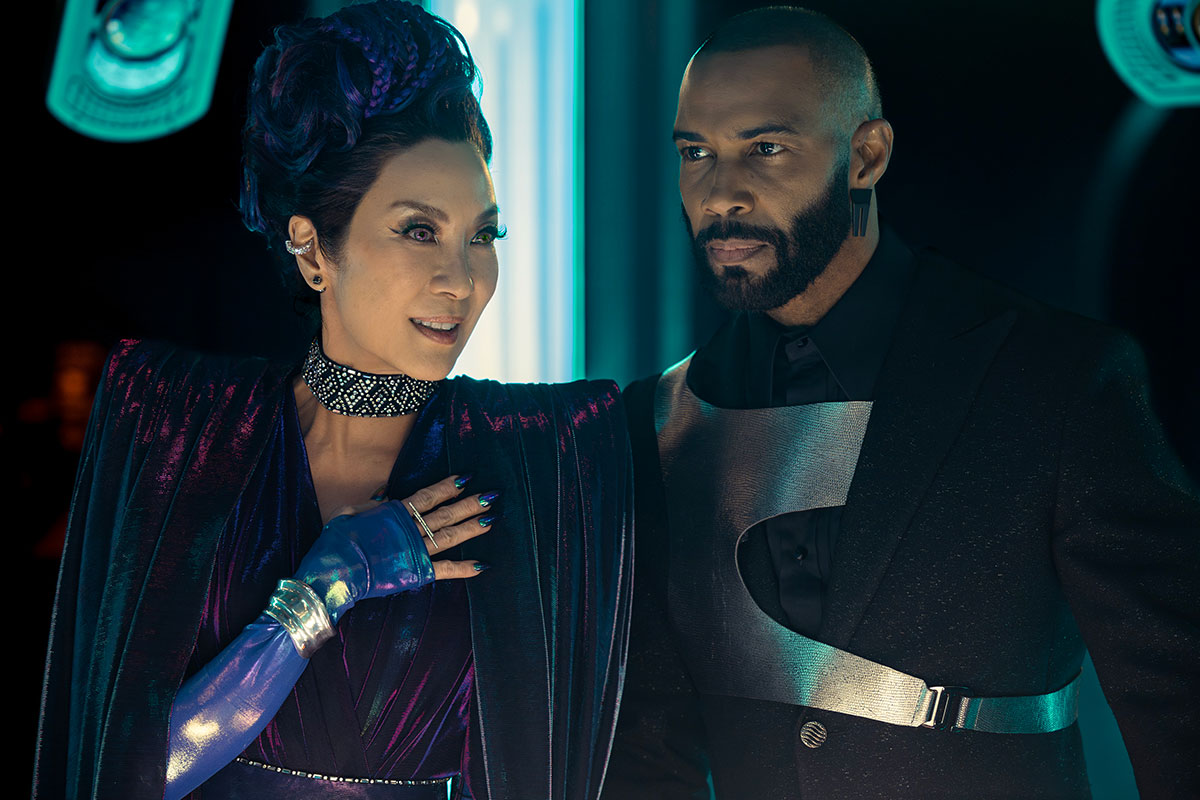
And in that context, Section 31 feels like a no-brainer, capitalizing on the star power of Michelle Yeoh and shaking things up as the franchise takes a spin at an action adventure spy movie in the vein of Guardians of the Galaxy or a sci-fi spin on Ocean’s Eleven. But in this movie’s attempt to put a different face on the Star Trek universe, it runs away from what’s most important and fundamental about a good and successful Star Trek movie… it actually needs to be Star Trek.
To me, there are two dimensions through which you can look at what constitutes the most successful Star Trek projects: that the project is contextualized within a rich narrative tapestry that has been built up over nearly 60 years of storytelling, and that the project has something to say and a perspective on some element of life or humanity. On both of those levels, Section 31 fails.
This is a movie that does not care at all about six decades of Star Trek canon. Fans were excited when it was announced that the movie would be set during the Lost Era — the period of time between Star Trek VI: The Undiscovered Country and “Encounter at Farpoint” — that’s only been glimpsed a few times over the years. But why set it then, when Section 31 makes absolutely no use of the time period in which it is set?
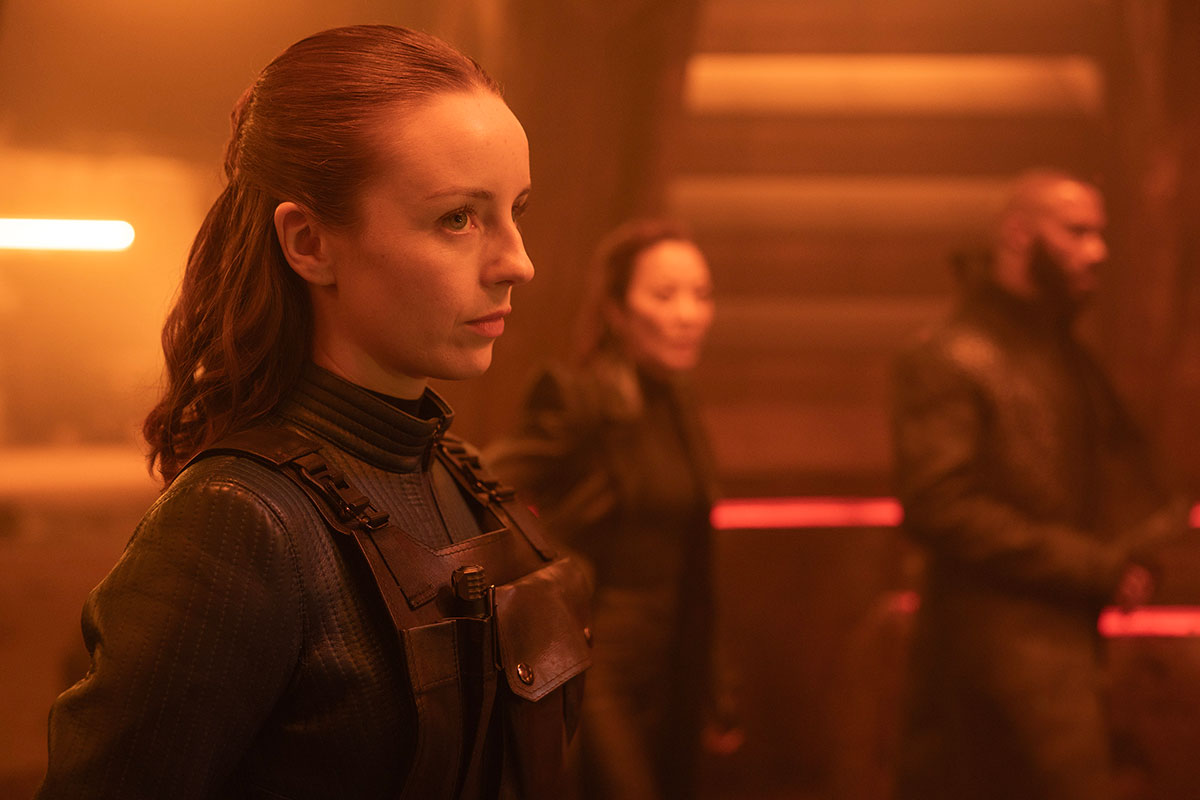
At no point does the movie even attempt to care about the era in which it finds itself, and there are almost no visual clues that would even hint at the time period for this movie. Were it not for the inclusion of Kacey Rohl as a young Rachel Garrett — who will later go on to captain the USS Enterprise-C — this movie would actually work a lot better if it was set back during the Strange New Worlds timeframe.
There are almost no visual or story connections to the wider franchise (beyond one or two classic Trek aliens in miniscule roles), and none of the starship or costuming hopes we’ve seen fans expect to see in the early 24th century — the movie is set “far outside of Federation space” and is content to just stay there.
Which is not to say, of course, that Star Trek projects must have deeper and wider connections to the franchise as a whole. Good Star Trek is about more than canon connections; there’s a hypothetical ‘good’ version of this movie that might have had just as few visual and story connections to Star Trek lore.
But that’s where the second element of a great Star Trek project comes into play: this movie has nothing to say.
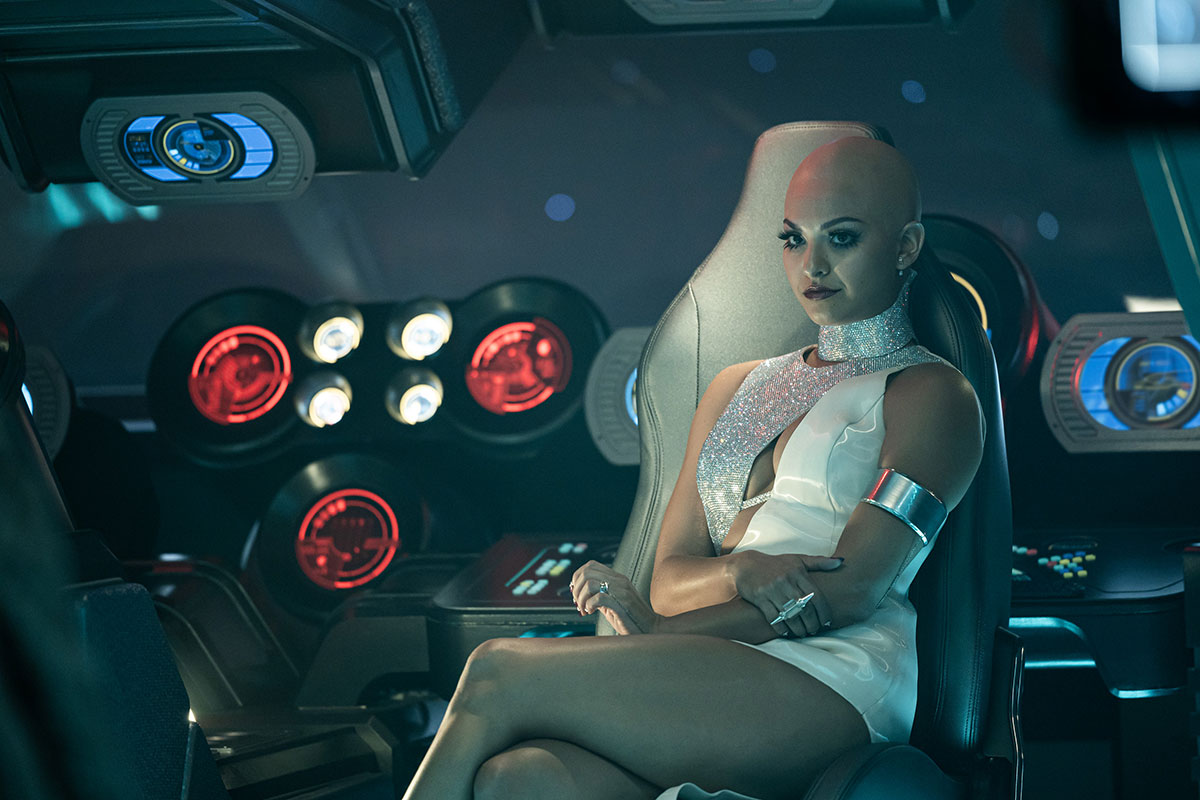
Section 31 — the spy organization itself — is a deeply troubling and challenging concept for the Star Trek universe. It has been since the moment it was introduced, and the implications it created that there was a darker undercurrent to the hopeful future that the Star Trek franchise to that point had presented to us.
Does this movie grapple with the moral questions about the existence of Section 31? Nope. It doesn’t even try to — it doesn’t care to. In Section 31, working for Section 31 is cool. Why spend time thinking about it, when there’s another supremely dull action set piece to rush to? So the movie has nothing to say about Section 31 as a concept.
It also has nothing to say about Phillipa Georgiou, beyond re-treading exactly the same plot points that were already explored during her time in Star Trek: Discovery. A lot of fans have had issue with the elevation of a character who has committed all manner of very serious crimes back in the Terran Empire: genocide, slavery, and murder, just to name a few.
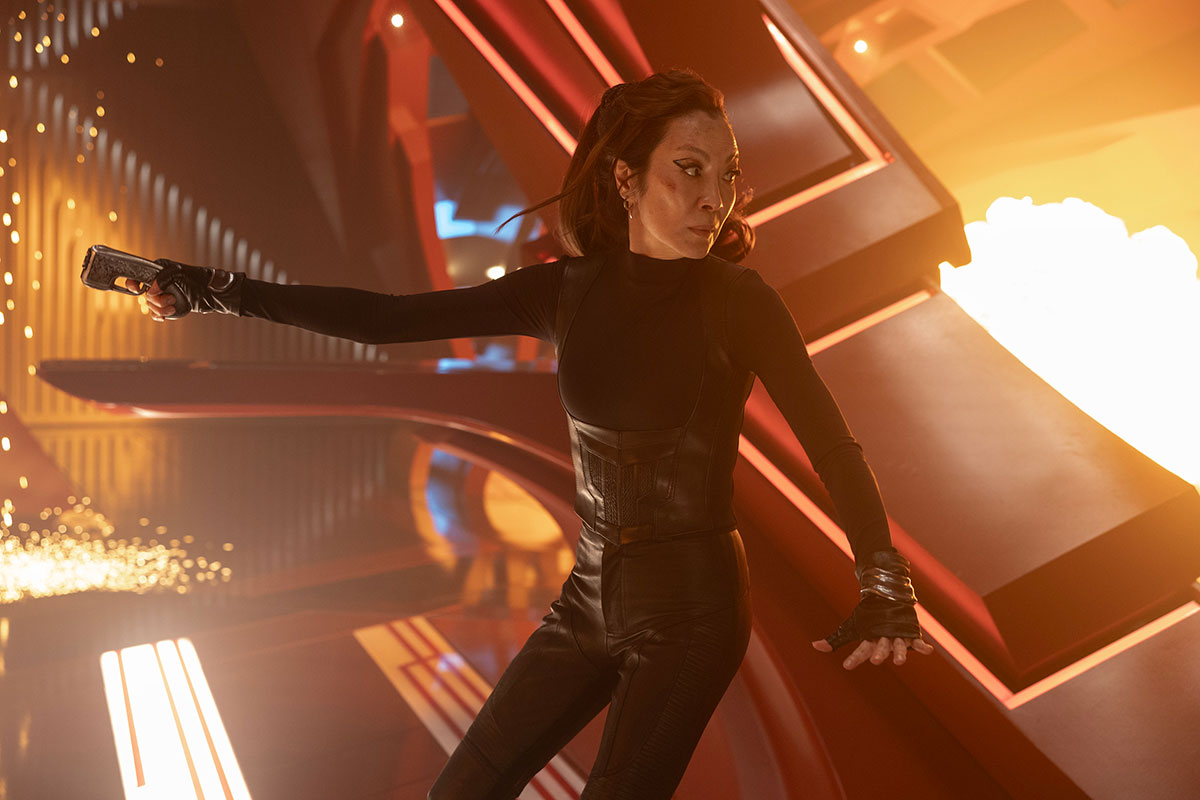
In order for this character to take center stage in a Star Trek project, it has always felt like there needed to be a major redemption arc. Discovery started that — particularly with the “Terra Firma” two-parter where Georgiou left the 32nd century, apparently headed to this early 23rd century locale.
But Section 31 just doesn’t care to do anything more interesting with the character. Does Phillipa Georgiou learn a moral lesson in this movie? I suppose she learns things like genocide are bad. I thought she’d already reached that level of moral growth, but apparently we need to watch it happen all over again.
But murder, torture, all manner of other crimes? Those are still cool and okay, because they make for a cool action space movie. Phillipa Georgiou is a deplorable protagonist, but the movie doesn’t care to explore that in any way.
Section 31’s moral core is rotten, the movie has nothing worthwhile to say that is designed to make you think or consider a moral dilemma — despite having a huge amount of material to work with — and you would be hard pressed to recognize this as a Star Trek movie if the words “Star Trek” were not in the title.
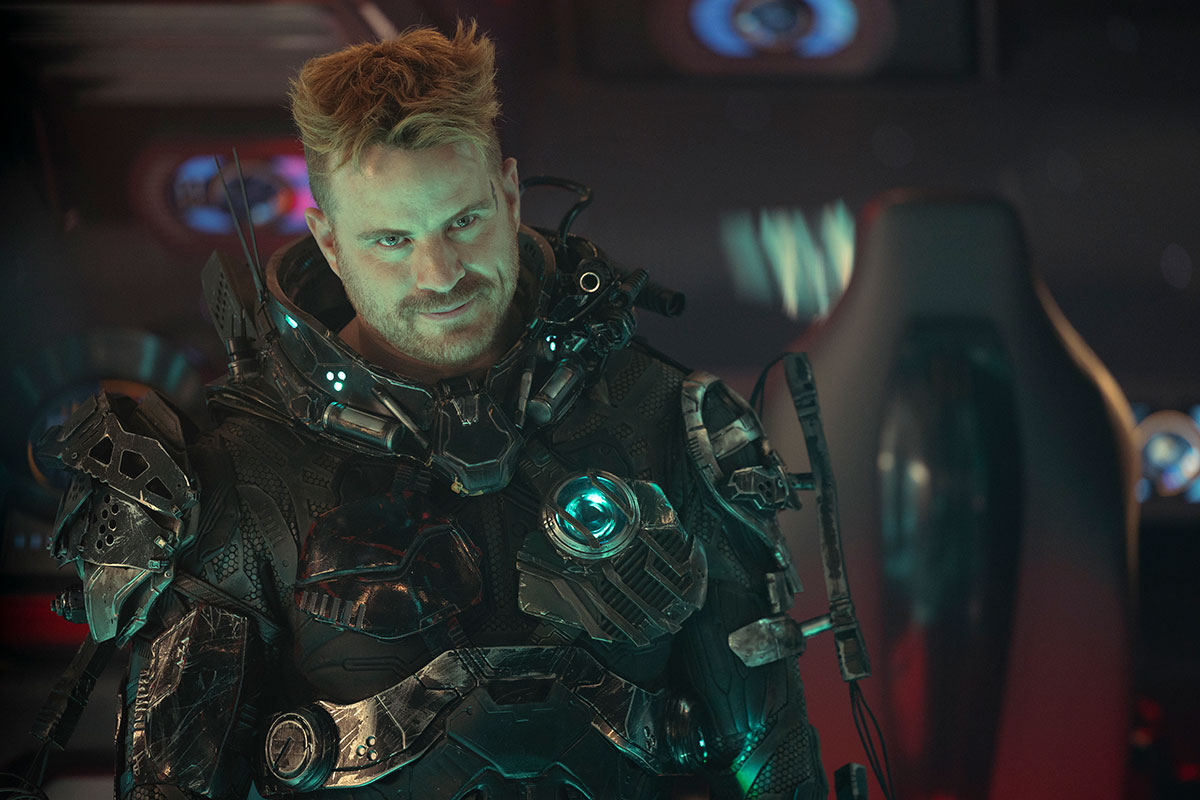
Among several successful attempts to reinvent Star Trek for the 21st century, most notably the delightful Strange New Worlds and the effervescent Prodigy, Section 31 stands out as a catastrophic mistake. It fails to understand what makes good Star Trek, and it is not worth your time or attention.
There are so many more movies and episodes — even “bad” ones — that have a better handle on what Star Trek is than Section 31. Take 100 minutes of your time to go watch one of those instead.
![]()
Star Trek: Section 31 stars Michelle Yeoh as Philippa Georgiou, along with Omari Hardwick, Rob Kazinsky, Sam Richardson, Kacey Rohl, Sven Ruygrok, James Hiroyuki Liao, Humberly Gonzalez, Joe Pingue, and Miku Martineau.
Watch for our full-spoilers review when the movie debuts Friday, January 24 on Paramount+. The film will later arrive February 7 for SkyShowtime viewers in Europe.
